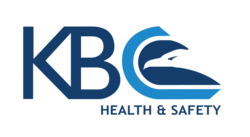60 seconds with… Mathews Mokwakwa
Hi Mathews! Thank you for taking the time to chat to Voices. Please tell us, what does a usual KBC day involve for you?
A usual day for a KBC facilitator would involve preparing for learning, welcoming and facilitating delegates, distribution of training material, housekeeping in terms of filing and overall delivering of quality training in line with KBC’s policies and procedures.
What makes the day special?
The delegates! Making a difference in their lives through sharing factual safety information and hearing their comments at the end of the day on how enjoyable the training was, is great. Seeing their positive attitude towards safety makes everything worthwhile.
What does your lesson preparation involve?
Lesson preparation includes researching the topics and determining how to effectively deliver the pertinent messages to a diverse audience. Our audiences can be quite diverse and in some cases delegates are illiterate, so they require a helping hand and some creativity to ensure they understand the lesson.
Who are the delegates you have attending your courses?
Most of the classes are attended by people from all walks of life ranging from mine employees to contractors and sub-contractors.
How does facilitating differ from training?
Facilitating is exciting as the audience differs every day and you never know what to expect. It differs from training as you tap into what they know and develop that. With training, you are the subject matter expert and you train people about what they should do, whereas with facilitation you tap into what they already know because they know lot of things and you enhance both their knowledge and yours. Facilitation is "a give and take approach".
Do you have a particular course you enjoy teaching above others?
Not specifically, all the higher-level courses are my favourite. But if I had to pick then it would be the Legal Liability course.
What do you do to keep your training exciting and keep your audience engaged?
It always helps to use an ice breaker and I’ll often reference current affairs to ease them into inviting discussions. I often use riddles as icebreakers and will choose my riddle depending on the audience. An example being “What starts with a T and ends with a T and is full of T?” Do you know the answer? Well, it’s a teapot! That helps encourage participation and keeps them present. A bit of humour always goes a long way too!
How do you think KBC Health & Safety training differs to that of its competitors?
KBC has tailored solutions to address the clients’ needs. This together with experienced facilitators and our constant reviewing of programmes gives us the edge over our competitors.
If you were to give a future KBC course attendee one bit of advice, what would it be?
“Knowledge brings change”. If you come prepared to learn and grow you will have the best training experience!
Any interesting stories to share?
There was once a delegate who didn’t know how to use a fire extinguisher. In frustration, he simply picked it up and threw the whole thing at the fire in the hope that it would just “do its job”!

